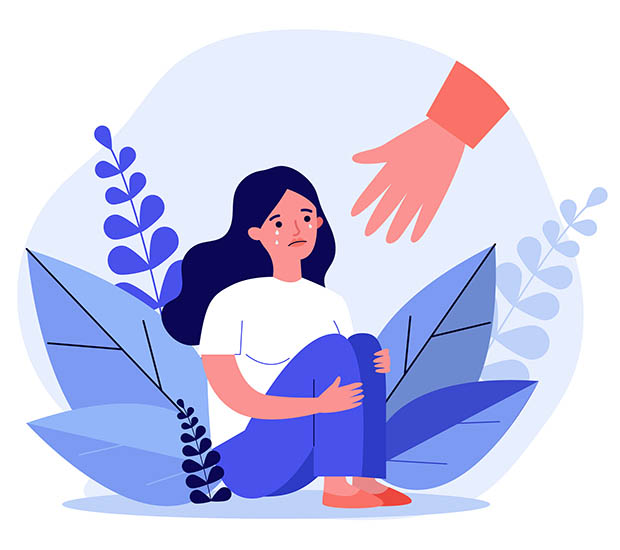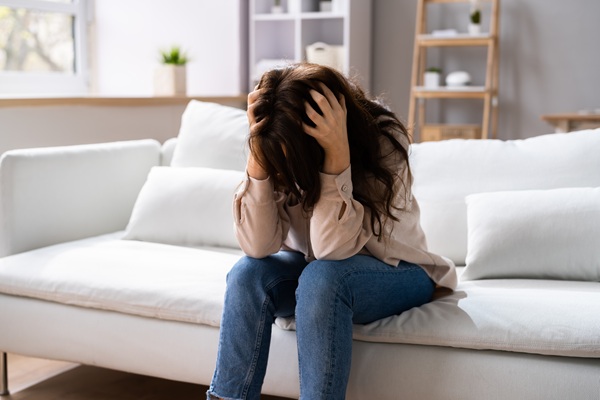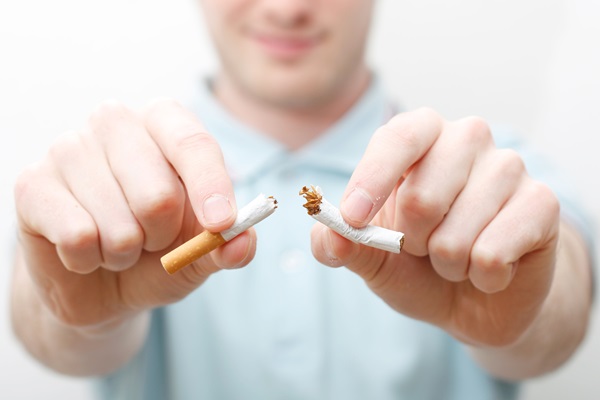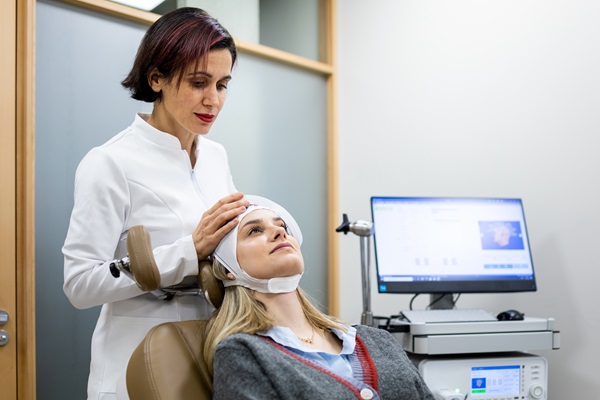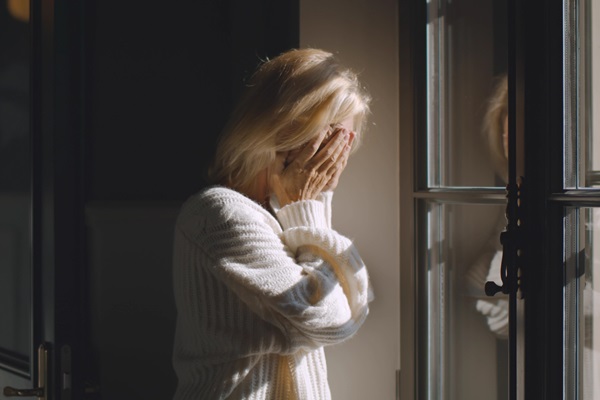Depression TreatmentNew York, NY
You might need depression treatment if you no longer get pleasure from activities you once enjoyed or regularly find yourself in a depressed mood. Depression is a mental health issue that affects a person's ability to function.
Symptoms of depression include feeling hopeless, anxious, or sad. The disorder often leads to memory issues, difficulty thinking, and poor sleep quality. People diagnosed with depression have often dealt with these symptoms for over two weeks, and they also experience other symptoms like a loss of interest in their favorite activities. Left untreated, depression often becomes worse. Severe cases of depression can lead to self-harming behavior and suicidal thoughts.
The different types of depression a patient might be diagnosed with include seasonal affective disorder, dysthymia, bipolar depression, and clinical depression. Psychotherapy and medication are the standard treatment options for depression. Both can be used as standalone treatments, but combining them often leads to the best results.
Most people with depression report a significant reduction in their symptoms after starting medication or psychotherapy, but about 30% do not respond to the treatment. Alternative approaches like transcranial magnetic stimulation (TMS) are typically recommended for patients with treatment-resistant depression.
Some of the issues that can lead to depression include:
- Genetics: People with relatives who suffer from depression are more likely to develop it
- Brain chemistry: People who have abnormal levels of chemicals in the brain are more likely to become depressed
- Major life events: A lack of a support system, isolation, traumatic events, the loss of a loved one, and stress can lead to depression
- Medication: Certain drugs can lead to depression as a side effect. Abusing alcohol or recreational drugs can also have the same effect
- Medical conditions: People with medical conditions like Parkinson's disease, cancer, and diabetes have a higher risk of developing depression. The same goes for people who find themselves dealing with illnesses that linger for years or chronic pain
- Personality type: People who have trouble coping and those who get overwhelmed easily are more likely to become depressed
Getting depression treatment
Depression is a common issue globally. About 16% of people in the U.S. will suffer from depression at some point. The condition has a significant impact on the lives of those who suffer from it. It often leads to poor performance at school or work. It can strain relationships with family members and spouses.
The different types of depression a patient can be diagnosed with include:
- Bipolar depression: People with this type of depression often alternate between low and extreme high moods (mania). During their lows, such patients typically have similar symptoms with other types of depression like low energy and feeling hopeless or sad
- Major depressive disorder: Major depressive disorder (MDD) comes with overwhelming or intense symptoms that often last longer than two weeks. The symptoms of the condition typically interfere with the patient's everyday life
- Perinatal and postpartum depression: Perinatal depression typically develops during pregnancy, and it can last up to a year after having a baby. The condition typically leads to stress, anxiety, or sadness. It is often referred to as postpartum depression
- Persistent depressive disorder (PDD): Also called dysthymia, persistent depressive disorder is usually less severe than major depressive disorder. However, its symptoms sometimes linger more
- Premenstrual dysphoric disorder: This is a more intense form of premenstrual disorder. It only affects women during the weeks or days leading to their monthly periods
- Psychotic depression: People with this type of depression often experience severe hallucinations, delusions, and depressive symptoms. A person hallucinates when they feel, hear, or see things that are not really there. A person suffers from delusions when their beliefs are not based on reality
- Seasonal affective disorder (SAD): Seasonal affective disorder is also called seasonal depression. It typically starts in the fall and early winter months. It usually goes away during the spring and summer months
Treating depression starts with a psychiatrist evaluating the patient to rule out health issues as a cause for their depression. A physical examination and blood tests are typically ordered when evaluating patients. Patients are also given questionnaires to fill out, and the psychiatrist discusses their symptoms with them. Some of the symptoms people with depression often complain about include:
- Physical issues like sexual dysfunction, stomach aches, and headaches
- Self-harming or suicidal thoughts
- Memory problems
- Difficulty concentrating on tasks
- Irritability
- Changes to their sleep patterns
- Changes to their eating patterns
- Not enjoying things that once made them happy
- Feelings of sadness, worry, and hopelessness that linger
People who report at least five of these symptoms are typically diagnosed with depression. Once a patient has been diagnosed, treatment options a psychiatrist might recommend include:
1. Psychotherapy
Psychotherapy involves talking to a psychiatrist or other qualified mental health professional. It can be done in one-on-one settings, or it can be group/family-based. These talk therapy sessions are used to identify negative thought patterns and behaviors. It also involves teaching patients new ways to cope with things that trigger their depression. It is an effective way to treat depression, and it can be combined with medication.
2. Medication
A psychiatrist is qualified to prescribe psychotropic medication like antidepressants that can alter a person's brain chemistry. Antidepressants usually take a few weeks to work, but they are effective in most cases of depression. Other types of drugs like mood stabilizers can also be used to reduce the symptoms of depression. While medication is an effective way to treat depression, patients who combine medication with psychotherapy typically get the best results.
3. Transcranial Magnetic Stimulation (TMS)
TMS therapy is typically recommended when psychotherapy and medication have failed to bring a significant reduction in the patient's symptoms. It is approved by the Food and Drug Administration (FDA) as a treatment for depression, and it is a non-invasive procedure that does not involve using sedatives or general anesthetics.
Transcranial magnetic stimulation involves sending magnetic pulses into a patient's brain. It targets the prefrontal cortex, the area that regulates mood and other symptoms of depression. TMS therapy helps increase brain activity there, reducing the symptoms of depression. This approach to treating depression involves getting up to five 40-minute therapy sessions per week for up to six weeks.
We provide depression treatment
Our psychiatrist can help you to manage the symptoms of depression and get past it. Give us a call or stop by our New York clinic to set up an appointment.
Request an appointment here: https://www.hopetmsofny.com or call Hope TMS and Neuropsychiatric Center at (646) 578-8152 for an appointment in our New York office.
Contact Us
Hope TMS and Neuropsychiatric Center is located at 57 W 57th St #808 New York, NY 10019.
